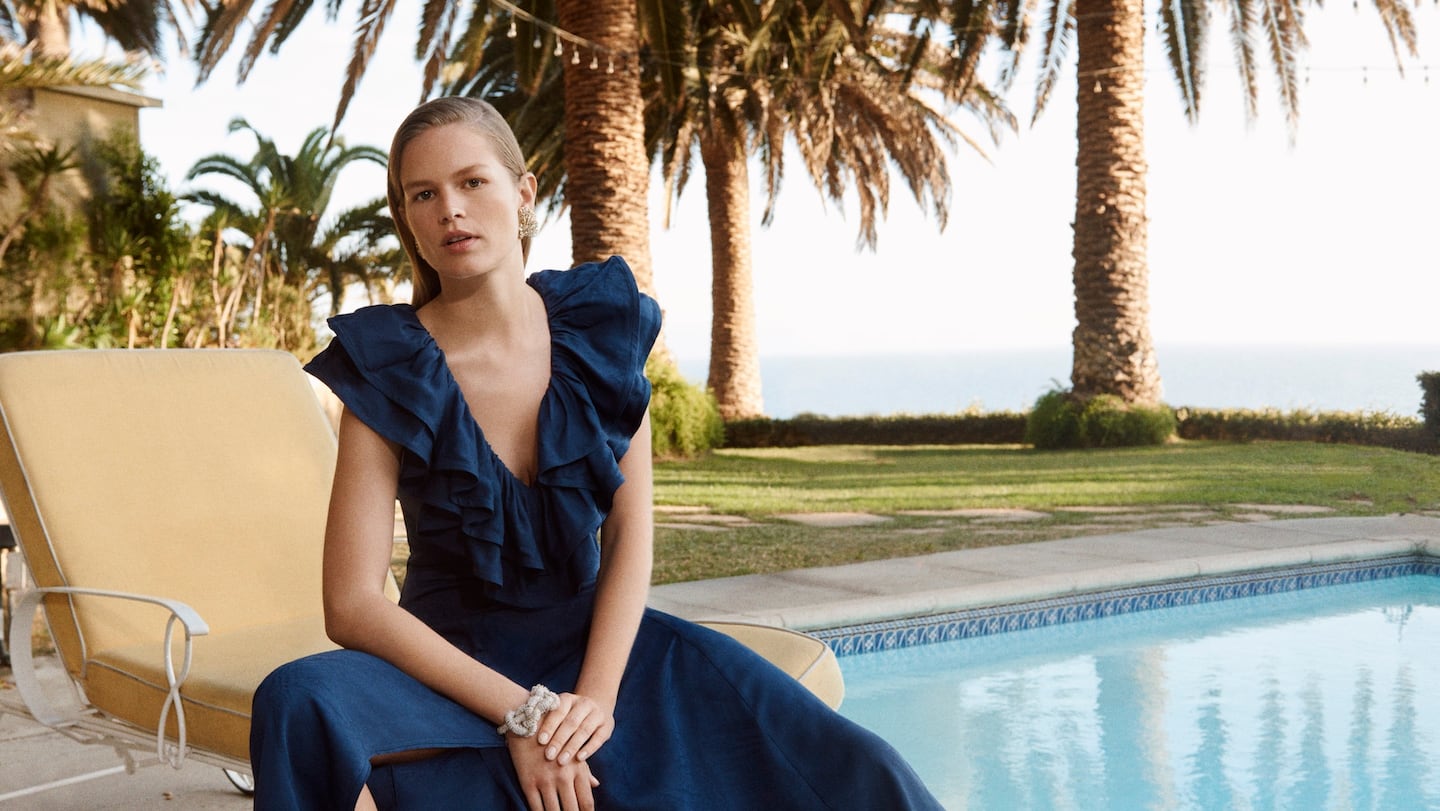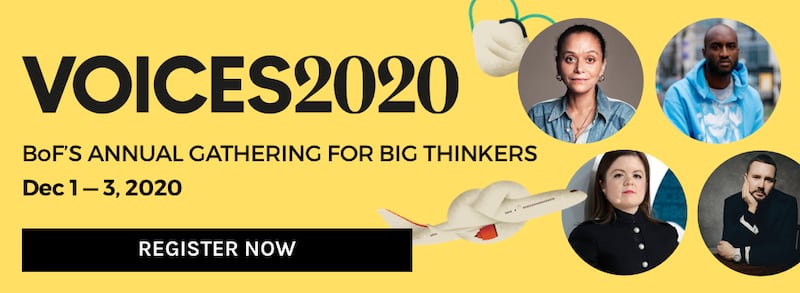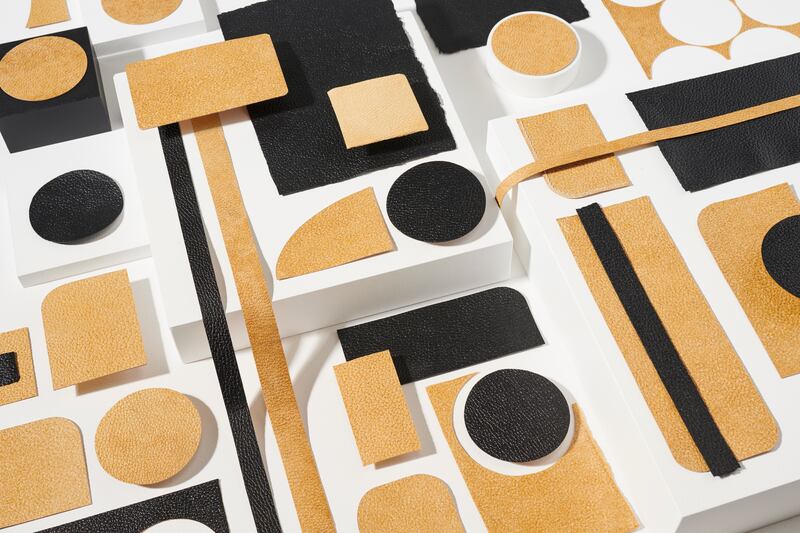
The Business of Fashion
Agenda-setting intelligence, analysis and advice for the global fashion community.

Agenda-setting intelligence, analysis and advice for the global fashion community.

 Opens in new window
Opens in new windowWhen textile recycling innovator Renewcell lists in Sweden today, H&M Group will be among the early-stage investors with an opportunity to cash out.
Instead, it is doubling down, with plans to invest a further 80 million Swedish Krona (about $9.3 million), according to Erik Karlsson, an executive at the company’s investment arm, H&M Co:Lab.
The fast fashion giant’s bet on Renewcell’s technology, which converts old cotton T-shirts and other clothes made from natural textiles into material that can be respun into new clothes, is the latest in a burgeoning trend for investments in sustainable innovation by fashion brands.
While H&M Group is an old hand, first investing in Renewcell in 2017 and launching H&M Co:Lab in 2015, this year has seen a raft of fashion brands expand investments in sustainable technologies, or enter the space for the first time.
ADVERTISEMENT
In August, Ralph Lauren took a minority stake in Natural Fiber Welding, a material science start-up focused on improving the quality of recycled cotton. Lululemon also entered the space for the first time, investing alongside Stella McCartney, Adidas and Kering to secure exclusive access to Mylo, a mushroom-based leather alternative developed by biomaterials maker Bolt Threads. Rival MycoWorks announced several major fashion brands — as yet unnamed — also participated in its $45 million Series B funding round on November 17.

Lululemon for one indicated it is planning further investments. The deal with Mylo is “the first of its kind, but not the last of its kind,” said chief product officer Sun Choe.
Fashion’s mounting interest in sustainable investments reflects the wider economic and political landscape. Even before the pandemic, high-profile natural disasters like Australia’s wildfires had intensified consumer pressure to act and raised alarm bells about the very real business risks presented by climate change-related disruptions. This year’s crisis has increased brand’s appetite to future-proof their businesses, with “resilient supply chains” suddenly becoming a buzzy topic for fashion executives.
That’s creating appetite for once under-funded or newly maturing technologies that could help transform the industry. For brands with enough discretionary capital to invest right now, these are bets that could pay off in the long term and, more immediately, make for good marketing.
The pandemic has seen a “sharpening of value sets, both for consumers and for companies,” said Caroline Brown, managing director at Closed Loop Partners, a New York-based investment firm focused on businesses involved in developing the circular economy. “I would say that the expression of interest [from brands] is stronger than ever,” she added.
Committed Money
Fashion has been slow to change in the face of the climate crisis, but pressure to clean up its act is mounting. Many brands have set ambitious targets aligned with global goals to limit climate change that require drastic cuts to greenhouse gas emissions within the next 10 years. What’s more, consumers are becoming more scrupulous and less forgiving of slow progress.
Ralph Lauren’s investment in Natural Fiber Welding was made with an eye on the brand’s 2025 target to source all of its cotton — its highest-volume material — from more sustainable sources. While conventional cotton is associated with a host of problems including forced labour and heavy water and pesticide use, recycled alternatives have historically struggled to compete on quality. “NFW’s technology fundamentally solves this challenge for us because it really expands the range of ways you can use that cotton,” said Halide Alagöz, Ralph Lauren’s chief sustainability officer, speaking to BoF shortly after the investment was announced in August.
ADVERTISEMENT
Meanwhile, H&M group’s sustainability investments skew heavily towards recycling technologies, reflecting the company’s ambition to become 100 percent circular. This means raw materials are sourced from recycled and sustainable sources, clothes are designed with recyclability and waste in mind and manufactured using renewable energy, and the life of a garment is prolonged through resale, rental and take-back schemes before being recycled or upcycled.
Start-ups are fun and all, but we’re here to make products and solve real problems.
On the other end of the fashion spectrum, companies including Chanel and luxury conglomerate Kering already have a track record of investing in sustainable start-ups. For instance, Chanel took a minority stake in silk-based performance textile maker Evolved by Nature in June 2019. Meanwhile, Kering is currently working with a total of 119 start-ups focused on sustainability, according to chief sustainability officer Marie-Claire Daveu. Its engagements range from partnering on pilot projects to more conventional minority investments.
“Some are at the very, very early stage, and others are quite advanced,” said Daveu.
The company spearheaded the Fashion Pact, an initiative that brings together roughly a third of the industry around a series of ambitious sustainability goals. Kering itself has committed to substantially reduce its environmental footprint over the next five years. It’s previously invested in textile blend recycler Worn Again and its more recent involvement in the Mylo consortium indicates its interest in material innovation. This year, the group is particularly focused on making strides in biodiversity, launching a fund in June to support regenerative agriculture projects.
The Scale-Up Gap
For many brands, the current trend marks a shift from years of pilot programmes that, while highly marketable, didn’t require substantial financial outlays and didn’t really move the needle. But there are still significant barriers to industry transformation.
For one, the current crop of investments isn’t nearly big enough. Most fashion companies don’t disclose their spending, but when it comes to sustainability investments the funding rounds they participate in rarely top $10 million, according publicly available information on investment tracker Crunchbase.
But transforming the industry in line with ambitious climate goals will require investments of between $20 billion to $30 billion annually, according to January 2020 report by Boston Consulting Group and Amsterdam-based sustainable start-up accelerator Fashion for Good.
ADVERTISEMENT
We’re a strategic investor first and foremost
Even with adequate financing, developing entirely new materials or processes can take years, if not decades to bring to market and gain traction. Fashion brands themselves are a crucial piece of this puzzle. Beyond cash, their interest demonstrates market appetite for new innovations that can give other investors confidence.
“They have actual understanding of what it takes,” said Dan Widmaier, chief executive of Bolt Threads. “Start-ups are fun and all, but we’re here to make products and solve real problems and to do that in this case [requires] the commitment to consumer product.”
A New Paradigm
To be sure, the fashion industry’s investments in sustainable innovation is in its infancy, but there are promising signs of broader movement. While exclusive access to maturing technologies or innovative materials with limited availability could undoubtedly give brands a competitive edge, there’s also a growing understanding no one company can do it alone.
Brands are also working more closely with manufacturers in a bid to embed new technologies into the supply chain, pointing to the potential for closer partnerships in an unequal relationship the pandemic has badly damaged.
When Fashion for Good first launched four years ago, it started with a handful of brands and retailers as its corporate partners. Now, it counts manufacturers among its collaborators too. “We realised how important it was to get those upstream suppliers at the same table,” said Brittany Burns, director of strategy and development at Fashion for Good. “We felt like it was really important to create these opportunities for a cross-pollination of ideas, but [also] co-development across the industry.”
Ultimately, the fashion companies looking to invest in sustainable start-ups are — like any investor — looking for returns, but many are looking beyond the balance sheet when selecting targets. Strategic investments that allow companies to outsource their sustainable research and development, or facilitate necessary industry-wide collaboration by bringing together multiple stakeholders, are also high priorities.
“We’re a strategic investor first and foremost,” said Karlsson of H&M Co:Lab. “Financial value is great, and of course that’s part of our investments... but the strategic connection for us, the strategic value that we can get out of our portfolio companies is, I would say, a bit more important.”
Related Articles
Chasing The Holy Grail of Circular Fashion
Chanel’s Sustainability Financing, Explained
How Fashion’s Sustainability Targets Measure Up
BoF’s ANNUAL GATHERING FOR BIG THINKERS
VOICES brings together the movers, shakers and trailblazers of the global fashion industry and unites them with the big thinkers, entrepreneurs and inspiring people who are shaping the wider world, hosted by BoF founder and editor-in-chief, Imran Amed, and led by BoF's expert editors and correspondents.
Register now to reserve your spot.
1. THE WIDER WORLD: Making sense of 2020 and charting a way forward
2. INSIDE THE FASHION SYSTEM: Addressing the industry’s most important challenges and opportunities
3. TECHNOLOGY & INNOVATION: Exploring how new technologies will change consumer behaviour
4. REINVENTING RETAIL: Understanding how forces accelerated by the pandemic are completely reshaping the retail landscape
5. LIVE YOUR BEST LIFE: Finding the balance, insight and inspiration to be the most authentic, healthy version of yourself
JOIN US FOR A GLOBAL CONVERSATION ABOUT THE FUTURE OF THE FASHION INDUSTRY
This year, VOICES will be delivered via a live broadcast adapted to the unique circumstances of the Covid-19 era — and BoF Professional and BoF Professional Student members anywhere in the world can take part in this live global conversation as the industry looks ahead to 2021. If you are not a member, sign up today with our 30 day trial, including access to VOICES 2020.
Europe’s Parliament has signed off rules that will make brands more accountable for what happens in their supply chains, ban products made with forced labour and set new environmental standards for the design and disposal of products.
Fashion’s biggest sustainable cotton certifier said it found no evidence of non-compliance at farms covered by its standard, but acknowledged weaknesses in its monitoring approach.
As they move to protect their intellectual property, big brands are coming into conflict with a growing class of up-and-coming designers working with refashioned designer gear.
The industry needs to ditch its reliance on fossil-fuel-based materials like polyester in order to meet climate targets, according to a new report from Textile Exchange.